Home> Company News> Understanding the Function of a Pressure Compensator and Its Impact on Hydraulic System Performance
- AddressNorth Tan Street, Jinan,Shandong
- Factory Address123 Ubi Ave 3 #12-30 Frontier Singapore 408867
- Worktime9:00-18:00(Beijing time)
- Phone(Working Time)86 0531-8299 9952
Understanding the Function of a Pressure Compensator and Its Impact on Hydraulic System Performance
NOVEMBER 02, 2022In hydraulic systems, a pressure compensator plays a crucial role in maintaining the desired pressure levels. The pressure compensator is a component that helps regulate the hydraulic pressure in a system, ensuring that it remains consistent and reliable. It is an essential part of any hydraulic system and can have a significant impact on its performance.
Hydraulic systems are widely used in various industries, such as agriculture, construction, and manufacturing. These systems rely on pressure to operate and move fluids or materials. The pressure compensator is an essential part of this process, ensuring that the system operates efficiently and effectively.
In this article, we will discuss the importance of the pressure compensator in hydraulic systems. We will also explore how pressure compensators work, the different types of pressure compensators, and their impact on hydraulic system performance. Additionally, we will examine emerging trends and innovations in pressure compensator technology and their potential implications for hydraulic system design and operation. Finally, we will offer some tips and best practices for maintaining and troubleshooting pressure compensators.
How a pressure compensator works
Hydraulic systems rely on the regulation of fluid pressure to function properly. When a system experiences pressure fluctuations, it can lead to inefficiencies and damage to the system. This is where the pressure compensator comes into play.
A pressure compensator is a device that regulates hydraulic pressure by adjusting the flow of fluid in the system. It is typically made up of a valve, spring, and piston. As pressure in the system increases, the piston is pushed against the spring, allowing fluid to flow out of the valve and reduce the pressure. Similarly, when pressure drops, the piston moves in the opposite direction, causing the valve to close and reducing the outflow of fluid, thus increasing the pressure.
The pressure compensator's operation ensures that the pressure in the hydraulic system is maintained at a constant level, regardless of changes in the load. It does this by adjusting the flow rate of hydraulic fluid in the system, which in turn adjusts the pressure. The pressure compensator also plays a critical role in preventing damage to the system by limiting the pressure that the system can handle.
There are various types of pressure compensators available, but they all work on similar principles. The specific design and configuration of a pressure compensator will depend on the application and the level of precision required. The next section will discuss the various types of pressure compensators in more detail.
Types of pressure compensators
Pressure compensators come in different types, each designed for specific applications and operating conditions. Here are some of the most common types of pressure compensators:
-
Mechanical pressure compensator: This type of compensator uses a mechanical mechanism to adjust the pump's flow rate based on the pressure differential. As the pressure differential changes, the compensator's mechanism alters the pump's flow rate to maintain a consistent pressure.
-
Electrical pressure compensator: This type of compensator uses electronic sensors to measure the pressure differential and adjust the pump's flow rate accordingly. It relies on an electric signal to control the compensator's mechanism, which adjusts the flow rate to maintain a consistent pressure.
-
Hydraulic pressure compensator: This type of compensator uses hydraulic pressure to adjust the pump's flow rate based on the pressure differential. It typically consists of a piston and a spring that work together to adjust the flow rate and maintain a consistent pressure.
-
Proportional pressure compensator: This type of compensator can adjust the flow rate proportionally to the pressure differential. It can maintain a more precise pressure control than other types of compensators.
-
Load-sensing pressure compensator: This type of compensator is specifically designed to operate in applications with varying loads. It adjusts the flow rate based on the load requirements, maintaining a consistent pressure while minimizing energy waste.
-
Pressure-limiting compensator: This type of compensator maintains a set pressure limit by bypassing the excess fluid back to the reservoir when the pressure exceeds the limit. It is often used in applications where overpressure can damage the system or its components.
Each type of pressure compensator has its own advantages and disadvantages. The type of compensator used depends on the specific application, operating conditions, and desired performance requirements. It is essential to select the right type of pressure compensator for a hydraulic system to achieve optimal performance and efficiency.
Impact of pressure compensator on hydraulic system performance
The pressure compensator is a critical component in maintaining the efficiency and performance of hydraulic systems. Its main function is to regulate and maintain a constant pressure in the hydraulic system, which is crucial for ensuring that the system operates properly.
When a pressure compensator is working correctly, it ensures that the hydraulic system operates efficiently and smoothly. This is because it allows for the system to operate at a constant pressure, which helps to prevent excessive pressure buildup that can lead to system damage or failure. Additionally, it helps to maintain a consistent flow rate, which is important for ensuring that the hydraulic system operates at optimal levels.
On the other hand, if a pressure compensator is not functioning properly, it can have a significant impact on the performance of the hydraulic system. For example, if the pressure compensator is not regulating pressure effectively, it can cause the system to operate at lower pressures than intended. This can result in slower system performance, reduced productivity, and increased energy consumption.
Conversely, if the pressure compensator is regulating pressure too high, it can cause excess stress on the system components and lead to damage or failure. This can result in costly repairs and downtime, as well as potential safety hazards.
To ensure that a pressure compensator is functioning properly, it is important to perform regular maintenance and troubleshooting. This includes regular inspection and cleaning of the pressure compensator components, as well as checking the system for leaks and other potential issues. Additionally, it is important to follow proper installation and operation procedures to prevent damage to the pressure compensator and other hydraulic system components.
Overall, the pressure compensator plays a critical role in ensuring the efficient and effective operation of hydraulic systems. By properly maintaining and troubleshooting pressure compensators, hydraulic system operators can ensure that their systems are operating at optimal levels, reducing the risk of system failure, and increasing productivity and efficiency.
Future developments and innovations in pressure compensator technology
Hydraulic technology is constantly evolving, and pressure compensators are no exception. There are several emerging trends and advancements in pressure compensator technology that have the potential to revolutionize hydraulic systems in the near future.
One major trend is the development of smarter and more precise pressure compensators. Advanced sensors and control systems can provide real-time data on system pressure and adjust the compensator accordingly, leading to improved efficiency and more accurate pressure regulation.
Another area of development is the use of alternative materials in pressure compensator manufacturing. New materials such as composites and lightweight alloys can reduce the weight and size of compensators while maintaining their strength and durability. This can lead to more compact and efficient hydraulic systems with reduced energy consumption.
In addition, there are efforts to integrate pressure compensators with other hydraulic system components, such as pumps and valves, to create more comprehensive and integrated hydraulic systems. This can lead to improved system performance and easier maintenance and troubleshooting.
The use of digital technologies such as artificial intelligence and machine learning is also becoming more prevalent in hydraulic systems, including pressure compensators. These technologies can analyze vast amounts of data to identify patterns and optimize system performance, leading to improved efficiency and reduced downtime.
However, as with any emerging technology, there are potential challenges and limitations to consider. These include the cost and complexity of implementing new technology, as well as the need for proper training and maintenance to ensure optimal performance. Additionally, the adoption of new technology may require significant changes to existing hydraulic systems, which can be costly and time-consuming.
Overall, the future of pressure compensator technology looks promising, with numerous advancements and innovations on the horizon. These developments have the potential to improve hydraulic system performance, reduce energy consumption, and enhance safety and reliability. It is important for hydraulic system designers and operators to stay informed about these advancements and consider their potential benefits and limitations in order to make informed decisions about system design, maintenance, and upgrades.
In conclusion, the hydraulic pressure compensator plays a critical role in maintaining the efficiency and performance of hydraulic systems. By regulating pressure, it ensures that the system operates at optimal levels, preventing potential damage and reducing the likelihood of system failure.
As technology continues to advance, there is significant potential for further improvements in pressure compensator design and functionality. However, it is important for individuals and companies to remain vigilant in their maintenance and troubleshooting of these critical components, ensuring that their systems operate smoothly and effectively.
Overall, understanding the role and importance of pressure compensators in hydraulic systems is essential for anyone involved in hydraulic system design, operation, and maintenance. By taking the time to learn about these critical components and staying up-to-date on the latest developments in technology, individuals can optimize their systems and ensure that they operate safely, efficiently, and effectively.


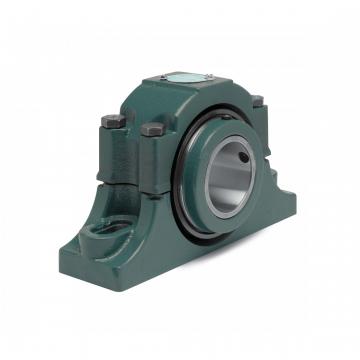 Mounted Tapered Roller Bearings P4B-EXL-212RE
Mounted Tapered Roller Bearings P4B-EXL-212RE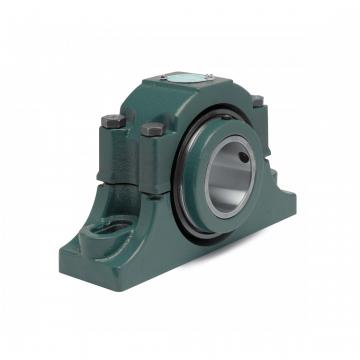 Mounted Tapered Roller Bearings P4B-EXL-400R
Mounted Tapered Roller Bearings P4B-EXL-400R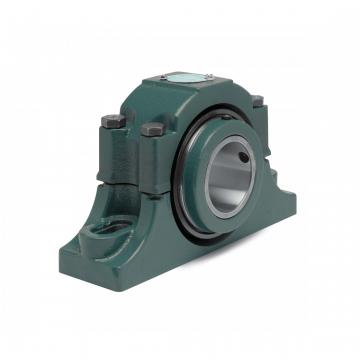 Mounted Tapered Roller Bearings P4B-EXL-400RE
Mounted Tapered Roller Bearings P4B-EXL-400RE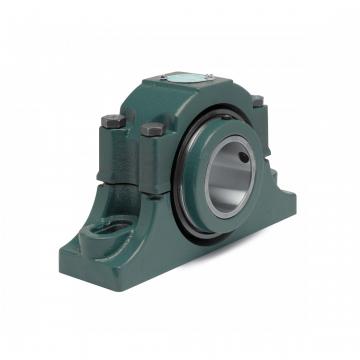 Mounted Tapered Roller Bearings P4B-EXL-315RE
Mounted Tapered Roller Bearings P4B-EXL-315RE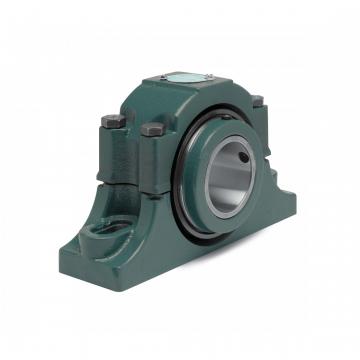 Mounted Tapered Roller Bearings P4B-EXL-207RE
Mounted Tapered Roller Bearings P4B-EXL-207RE